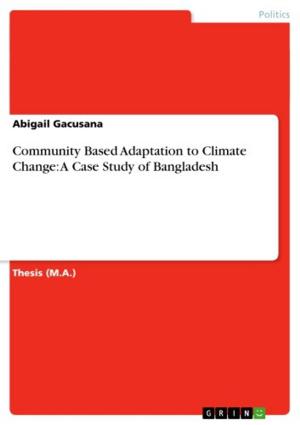Children and the Media - Kids and technology (Special edition)
Kids, School Tools, Social Science, Nonfiction, Social & Cultural Studies| Author: | J Horsfield @ Hearts Minds Media, J. HORSFIELD | ISBN: | 9781641868747 |
| Publisher: | Hearts Minds Media | Publication: | November 2, 2017 |
| Imprint: | Language: | English |
| Author: | J Horsfield @ Hearts Minds Media, J. HORSFIELD |
| ISBN: | 9781641868747 |
| Publisher: | Hearts Minds Media |
| Publication: | November 2, 2017 |
| Imprint: | |
| Language: | English |
Children and the media - kids and Technology combo - The need for limits by Hearts and Minds Media
Kids and Technology - Nature vs Nurture?
It seems these days that kids are operating electronic devices such as smartphones practically moments after being born. Just take a look around any local playgroup or playground: You’ll be likely to see kids as young as 2 or even younger clutching mom or dad’s phone to play games or view videos. When it comes to technology, kids are not only starting to use it at a younger age but are using it in more varied situations, both at home and at school. The media machine is changing daily utilising new technologies to stimulate, surprise and saturate not only older but the next generation on new methods of living and experiencing life. It is a force to be reckoned with, with the ability to influence actions and behaviour at least through modelling behaviour leading to desensitisation towards sex, violence with the verbal content of this new medium. The BBFC for example is the UK watchdog towards inappropriate content in film and TV which refrains from following its own standards of content rarely cutting or removing a film from the UK market (10 films only banned in the past 10 years; BBFC, 2017)
Kids and Technology - Nature vs Nurture?
Media and digital devices are an integral part of our world today. The benefits of these devices, if used moderately and appropriately, can be great. But, research has shown that face-to-face time with family, friends, and teachers plays a pivotal and even more important role in promoting children's learning and healthy development. Keep the face-to-face up front, and don't let it get lost behind a stream of media and tech.
EDUCATION – “First-hand experiences… can help to make subjects more vivid and interesting for
pupils and enhance their understanding… [and] could make an important contribution to pupils’
future economic wellbeing and to preparing them for the next stage of their lives.” (Ofsted, 2008)
HEALTH AND WELLBEING – “Children increase their physical activity levels when outdoors and are
attracted to nature… All children with ADHD [Attention Deficit Hyperactivity Disorder] may benefit
from more time in contact with nature…” (Bird, 2007)
PERSONAL AND SOCIAL SKILLS – “Experience of the outdoors and wild adventure space has the
potential to confer a wide range of benefits on young people… Development of a positive self-image,
confidence in one’s abilities and experience of dealing with uncertainty can be important in helping
young people face the wider world and develop enhanced social skills.”. It identifies four specific types of impact: COGNITIVE IMPACTS – concerning knowledge, understanding and
other academic outcomes. AFFECTIVE IMPACTS – encompassing attitudes, values, beliefs and selfperceptions. INTERPERSONAL AND SOCIAL IMPACTS – including communication skills, leadership and
teamwork. PHYSICAL AND BEHAVIOURAL IMPACTS – relating to physical fitness, physical skills,
personal behaviours and social actions. Looking more closely at cognitive impacts, “both students
and their teachers reported increases in knowledge and understanding as a result of experiences in
the outdoor classroom. Whenever students were asked about their learning, they were generally able to explain something that they had seen, learned or understood on the visits… Developments in knowledge and understanding appeared to be from across a range of cognitive domains” (Dillon et
al, 2005).
Children and the media - kids and Technology combo - The need for limits by Hearts and Minds Media
Kids and Technology - Nature vs Nurture?
It seems these days that kids are operating electronic devices such as smartphones practically moments after being born. Just take a look around any local playgroup or playground: You’ll be likely to see kids as young as 2 or even younger clutching mom or dad’s phone to play games or view videos. When it comes to technology, kids are not only starting to use it at a younger age but are using it in more varied situations, both at home and at school. The media machine is changing daily utilising new technologies to stimulate, surprise and saturate not only older but the next generation on new methods of living and experiencing life. It is a force to be reckoned with, with the ability to influence actions and behaviour at least through modelling behaviour leading to desensitisation towards sex, violence with the verbal content of this new medium. The BBFC for example is the UK watchdog towards inappropriate content in film and TV which refrains from following its own standards of content rarely cutting or removing a film from the UK market (10 films only banned in the past 10 years; BBFC, 2017)
Kids and Technology - Nature vs Nurture?
Media and digital devices are an integral part of our world today. The benefits of these devices, if used moderately and appropriately, can be great. But, research has shown that face-to-face time with family, friends, and teachers plays a pivotal and even more important role in promoting children's learning and healthy development. Keep the face-to-face up front, and don't let it get lost behind a stream of media and tech.
EDUCATION – “First-hand experiences… can help to make subjects more vivid and interesting for
pupils and enhance their understanding… [and] could make an important contribution to pupils’
future economic wellbeing and to preparing them for the next stage of their lives.” (Ofsted, 2008)
HEALTH AND WELLBEING – “Children increase their physical activity levels when outdoors and are
attracted to nature… All children with ADHD [Attention Deficit Hyperactivity Disorder] may benefit
from more time in contact with nature…” (Bird, 2007)
PERSONAL AND SOCIAL SKILLS – “Experience of the outdoors and wild adventure space has the
potential to confer a wide range of benefits on young people… Development of a positive self-image,
confidence in one’s abilities and experience of dealing with uncertainty can be important in helping
young people face the wider world and develop enhanced social skills.”. It identifies four specific types of impact: COGNITIVE IMPACTS – concerning knowledge, understanding and
other academic outcomes. AFFECTIVE IMPACTS – encompassing attitudes, values, beliefs and selfperceptions. INTERPERSONAL AND SOCIAL IMPACTS – including communication skills, leadership and
teamwork. PHYSICAL AND BEHAVIOURAL IMPACTS – relating to physical fitness, physical skills,
personal behaviours and social actions. Looking more closely at cognitive impacts, “both students
and their teachers reported increases in knowledge and understanding as a result of experiences in
the outdoor classroom. Whenever students were asked about their learning, they were generally able to explain something that they had seen, learned or understood on the visits… Developments in knowledge and understanding appeared to be from across a range of cognitive domains” (Dillon et
al, 2005).















